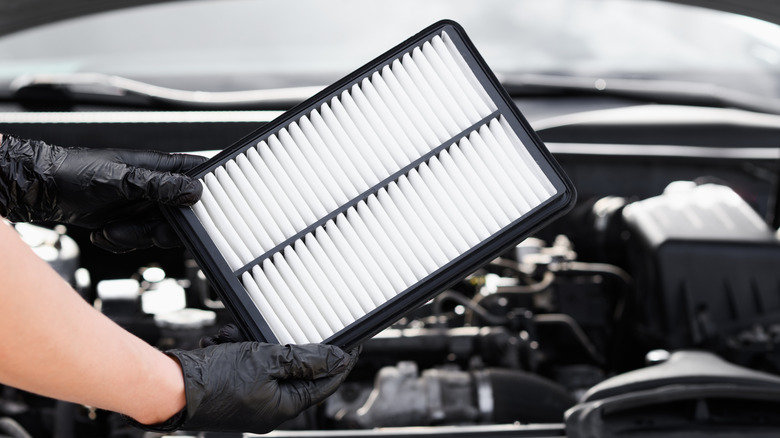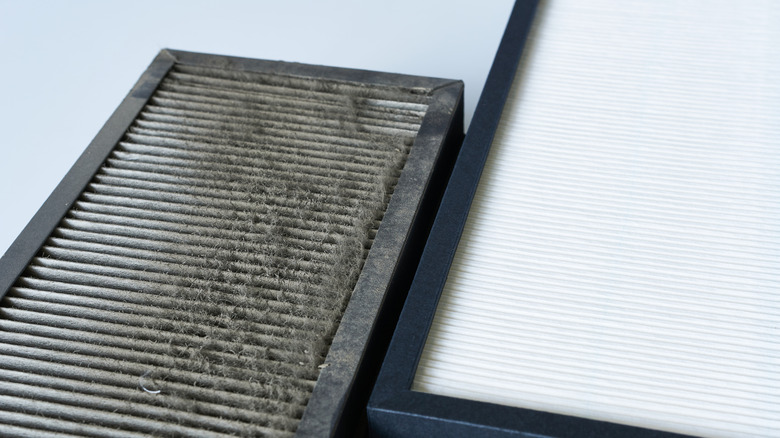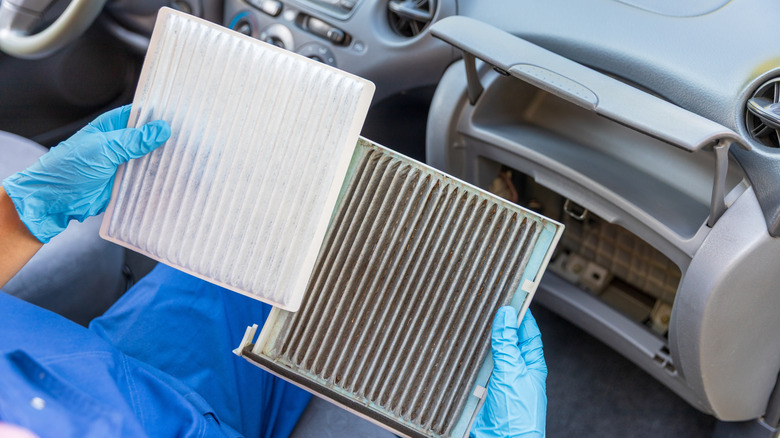Every time you hit the road, your car’s intake system pulls in air that’s full of dust, pollen, bugs, and other junk. That’s where the engine air filter steps in, acting as the first line of defense against debris that could otherwise gunk up combustion chambers and potentially reduce performance. It essentially helps keep things in a clean condition, allowing your engine to breathe freely, burn fuel efficiently, and perform at its best. Otherwise, you might feel a sluggish throttle response, poor acceleration, or worse, gradual engine wear.
Advertisement
Now, it’s worth mentioning that your car actually has two types of air filters. Not to be confused with the engine air filter, you also get a cabin air filter that cleans the air entering your car’s interior through the HVAC system. This one’s all about keeping you and your passengers’ lungs safe from allergens, pollution, and odors. That said, we’ll be focusing on the engine air filter today, since it directly affects your vehicle’s performance and longevity.
Do cheap air filters affect engine power?
To find out if pricier engine filters make any difference, The Drive put five filters to the test in an eighth-gen Honda Civic Si. It was a proper dyno session conducted using a ProHub Dynamometer. The contenders were a used Denso ($9.84), a fresh Honda OEM ($17.74), the ultra-budget Ultra 8 ($8.99), the tuner-beloved aFe Power Pro Dry S ($78.40), and the ultra-premium Spoon Sports ($90). The idea was to see if any of these filters could squeeze out more horsepower or torque from a near stock K20Z3 engine.
Advertisement
Each filter type came with its own pitch. The cheaper ones are made of basic paper or synthetic materials and promise functional filtration for everyday driving. Higher-end filters like those from aFe and Spoon use reusable dry media and performance-focused designs aimed at improved airflow and longevity. Some, like the oiled cotton gauze types (think K&N), also tout better flow, but require frequent cleaning and careful maintenance to avoid gumming up sensors.
Once the numbers came in, though, it was clear none of the filters made any significant difference in engine output. Surprisingly, the Denso filter, which was the cheapest of the bunch, topped the horsepower chart at 177.0 hp. The Honda OEM wasn’t far behind at 176.7 hp, while the premium aFe and Spoon Sports filters hovered around 175 hp. Even torque numbers were within a narrow band, suggesting that for a stock engine running a factory airbox, the filter isn’t a real performance bottleneck.
Advertisement
Not everything’s about the performance, though
Even if you’re not chasing numbers, the quality of your filter still plays a real role in how your engine ages and how often you make replacements. Cheaper filters, especially basic paper ones, are perfectly adequate for short-term use or casual driving. But they tend to clog faster and break down sooner, meaning more frequent replacements. In contrast, higher-end filters, particularly dry synthetic or washable gauze types, typically offer better filtration, higher dirt-holding capacity, and longer service intervals. Over time, that can mean fewer trips to the parts store, less garbage in landfills, and more consistent airflow to your engine.
Advertisement
There’s also the matter of environmental conditions. If you’re regularly driving in areas with heavy dust, pollution, or construction debris, a more robust filter can help protect both your engine and your lungs. Such filters can extend the life of your MAF sensor, throttle body, and other components. For a closer look at the top-rated brands that offer these kinds of high-quality filters, check out our list.
Your in-cabin environment matters too, and cabin filters can have a direct impact on your health and comfort. Premium cabin filters with HEPA media or activated carbon layers are especially useful for drivers with allergies, asthma, or those who regularly drive in cities with poor air quality. They can trap pollen, smog, mold, and even bacteria.
Advertisement










